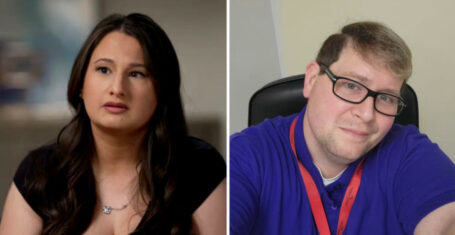
Minority Report
LANCE MAO uncovers the insidious side of racism in Cambridge.
Racism has undermined human morality for centuries. In the UK we live in a multicultural society where most racially motivated discrimination is deemed unlawful and immoral, but now, ignorance has now become the number one reason for racial prejudice. It is a trait closely associated with a lack of educational background. So what is the situation at the scene of one of the world’s most renowned educational institutions?
I’m writing this article because, as an ethnic minority student myself, I feel that people need to be made more aware of racism in Cambridge. I myself have not been involved in ‘explicit’ incidents of racism during my time here, but there is an underlying ‘implicit’ discrimination that is much more covert but just as insidious. To find out whether others that have shared my experiences, I set out to interview other minority students to see if their race has affected their time here.
One student from Selwyn remarks: “I haven’t had any experience of racism during my stay here and find Cambridge quite liberal and welcoming … I am fine with “casual” racism in banter as long as it’s within limits and in good spirit.” Another student shares a similar experience: “There has [been] the rare bit of racism from mild ‘banter’. However, it’s always been from close friends which I do not mind at all.”
Positive responses so far, but how does Cambridge compare to students’ home towns in terms of tolerance and racial acceptance? A NatSci student from Russia offers his insight: “As a non-white in Russia, I often experience racism, which has at times taken a violent turn … I can just ignore verbal abuse, but I have to stay on the lookout for people who mean harm to me. Compared to that, Cambridge is a breath of fresh air!”
In fact, many of those questioned had no complaints at all about Cambridge. They cherish a peer group that is the most welcoming they’ve ever experienced.
However, as more students were interviewed, a different side was revealed. A second year student claimed he had been subjected to racist bullying on Facebook and elsewhere. The messages had racist undertones; one in particular invoked slurs relating blacks and theft, and further such messages were left at his library desk. Clearly, the student was alarmed at this kind of behaviour occurring in Cambridge: “I found it staggering that someone presumably highly intelligent and well educated could be so ignorant and lacking in basic empathy.”
Another student from Emma was upset about one particular incident: “A student once, during Islam week, dragged a box full of Qur’ans into the college bar and proceeded to rip them up. When a student tried to step in and stop him, college members told her to lighten up and not take it so seriously.”
Explicit racism is relatively rare today in the UK. 20% of those I interviewed have first-hand experienced explicit racism, but as much as 50% have reported what they felt was implicit racism at Cambridge. As someone who has experienced both kinds, the latter stands out as more pernicious.
Many of us still discriminate and succumb to stereotypes, perhaps subconsciously. This phenomenon is well documented, and has led ethnic graduates to ‘whiten’ their job applications for higher recruitment success. Most employers guilty of such workplace discrimination are not outright racists. They, like you and I, could be housing embedded stereotypes. As a result, in places where an ethnic minority is under-represented, their members feel a degree of alienation.
One student, hostess to a house party, shared her experience: “One guy … came ‘blacked up’ supposedly as a slave. I told him I was offended by his costume, but everyone else found it part of the fun. After my complaint wasn’t really taken seriously, [I left it as] I didn’t want to make it awkward. I don’t see them as racists, they just thought it was funny … but it made me feel suddenly really very alone. I’m one of the only girls of my minority in my college, so when stuff like that happens it really highlights the cultural gulf there is between us.” A fellow student who heard about the incident commented: “We don’t make light of the Holocaust, why make light of slavery?”
Another student speaks about his experience: “I feel more comfortable in London … here I feel a level of reluctance of people to coming up to talk to me. My race seems to make them more hesitant to socialise with than someone from a different ethnicity.”
Others share similar experiences: “Many peers I’ve met had existing prejudices of ethnic minorities [since they have] met very few. I find that no matter how hard I try, people will continue to try and force me to fit their existing stereotype and support their prejudices. Everything I do to counter such prejudices is wrong. It’s like their prejudices and stereotypes are what they’ve viewed as right for so long and they cannot handle it.”
Education might reduce ignorance, but there is a deeper level of sub-conscious racism which education does not cure. There is still a way to go in conquering racism and it starts on a personal level: everyone can battle their own racist inadequacies.
Each college JCR should establish an ethnic minority representative to whom victims of discrimination can turn when in need of advice and support. The fact they don’t already is more than a bit shameful.
The fight against racism is far from over; until that day, ethnic minorities shall continue to live in doubt. One student expressed his scepticism: “Britons always appear to be gentlemanly, but it’s hard for me to gauge if they truly treat me as an equal.”









































